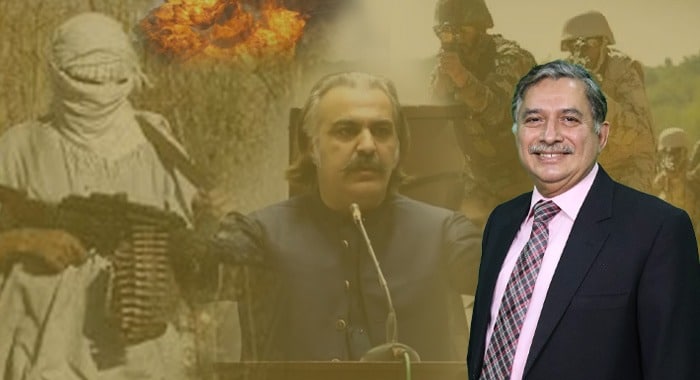More than two decades into Pakistan’s war on terrorism, Khyber Pakhtunkhwa (KP) remains at the front-line, yet increasingly vulnerable. Despite years of military operations, police reforms, and official rhetoric, the province continues to face a rising tide of militancy. What exists on paper—legal frameworks and counter-terrorism strategies, has failed to materialise effectively on the ground. The reason is painfully clear: a persistent lack of political will and weak execution.
Policy Without Teeth
Pakistan does not lack laws to fight terrorism. Instruments like the Anti-Terrorism Act of 1997, the Pakistan Penal Code, the Criminal Procedure Code, and the Aid of Civil Power Regulations provide a solid legal foundation. The Apex Committee structure, bringing together top civilian and military officials, was designed to ensure coordination and rapid decision-making.
Yet, terrorist attacks continue to erupt across the province. These are not isolated incidents; they are signs of systemic failure in implementation. Meetings are held, policies are announced, but few are followed through with consistency or resolve. Bureaucratic inertia, political expediency, and shifting blame between provincial and federal authorities have hollowed out what could have been a functional response mechanism.
The Police: Strengthened But Not Supported
To its credit, KP’s police force has seen a transformation. Its personnel have grown from 32,000 in the early 2000s to more than 125,000 today. Specialised training, better equipment, elite units, and counter-terrorism wings have all been developed. Technology—including digital command centres, Safe City projects, and GSM tracking, has improved operational capability.
But these advancements are no substitute for political clarity and strategic support. The police cannot win this war alone, especially when dealing with transnational threats. Their legal jurisdiction ends at the border—but terrorism does not.
Political Ambiguity: A Dangerous Signal
Perhaps the most troubling aspect of KP’s counter-terrorism landscape is the confused political messaging. At one end, security forces are sacrificing their lives in armed confrontations with militants. At the other, politicians have repeatedly floated the idea of dialogue with groups that continue to engage in violence.
Recent statements calling for talks with the Taliban echo past overtures that undermined security efforts. When political leaders speak of negotiation while security forces are in combat, mixed signals are sent—to the public, to the police, and most dangerously, to the militants.
Dialogue, if ever pursued, must be on the state’s terms and should not run parallel to active operations unless militants fully disarm and accept the constitution. Anything less emboldens extremism.
Regional Realities, National Responsibilities
The insurgency in KP is not a local issue; it is intricately linked to developments across the border in Afghanistan. Militant safe havens, ideological sanctuaries, and logistical support networks thrive in that environment. While recent trilateral talks with China and Afghanistan have led to promises that Afghan soil will not be used against Pakistan, those commitments remain mostly rhetorical.
Border security, regional diplomacy, and international pressure fall squarely within the federal government’s domain. Without serious diplomatic and strategic engagement, KP will continue to suffer the fallout of cross-border militancy.
Shared Burden, Shared Accountability
Fighting terrorism requires unity of command and purpose—but also clear lines of accountability. Both the provincial and federal governments must take ownership. The province must stop using federal inaction as an excuse, while the centre must treat KP not just as a battleground but as a partner in need of robust support.
Security institutions, meanwhile, must remain focused, coordinated, and insulated from political distractions. The war on terror demands not just weapons and tactics, but clarity, continuity, and national resolve.
The Cost of Complacency
KP’s people have paid the heaviest price in Pakistan’s fight against terrorism. They deserve more than hollow statements and half-measures. What’s needed now is not another press conference or committee—but real action, unified leadership, and the courage to confront hard truths.
Without it, the war will rage on—and Pakistan will continue to bleed in silence.





